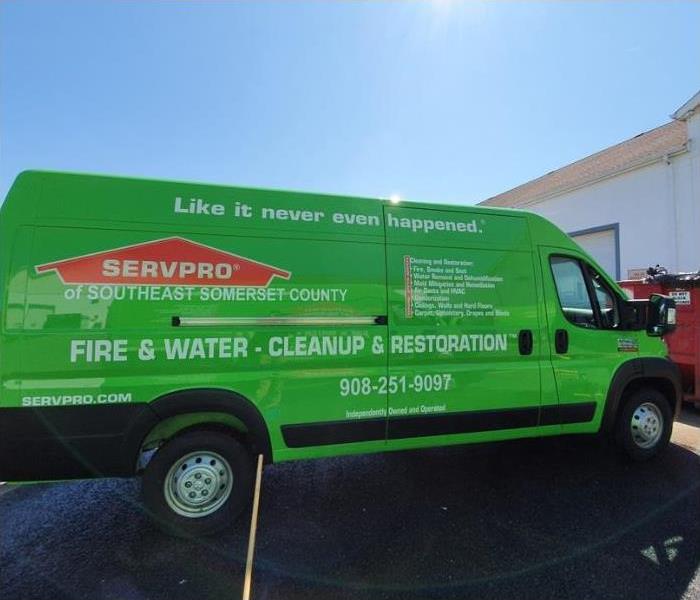Ways Falmouth Residences Can Contain Mold Damage
4/10/2023 (Permalink)
 Wherever you find mold damage in your Falmouth home, team SERVPRO can help remediate the damage. Contact us 24/7 for services.
Wherever you find mold damage in your Falmouth home, team SERVPRO can help remediate the damage. Contact us 24/7 for services.
Falmouth Homeowners Benefit From SERVPRO Mold Remediation
Mold is a progressive problem in terms of damage to properties. The incident at your Falmouth home can leave a mild impact or develop into a full-blown crisis that requires elaborate restoration procedures. Unlike other property disasters, you can influence the result of mold damage in your property based on your actions.
The action you can take in Falmouth to contain mold damage might depend on the timing of discovery. If the issue is in its formative stages, you only need to take the steps that curtail microbial growth and perform the cleanup. However, removing deteriorated materials is necessary if the contamination has taken root. Whatever the situation, assistance from SERVPRO is beneficial.
Containing mold contamination requires:
- Limiting growth
- Limiting debris spread
- Preventing harmful exposure
Mold requires sufficient moisture and a source of food. It develops when spores on surfaces sprout, spreading hyphae and creating a colony. Disrupting growth is possible by stopping all water sources supplying an area or inhibiting microbial growth processes. Our SERVPRO technicians help by extracting stagnant water or drying wet materials. Inhibiting growth processes is also by applying chemical agents with antifungal and antibacterial properties on surfaces. For example, after removing the carpet and pad, we use the biocide on the floor surface before laying a new carpet.
Handling Mold Debris
In a moldy property, debris comes from several sources, including loose colony fragments, deteriorated materials, and dust from the drilling or cutting process when removing unsalvageable materials. Any heavily contaminated porous material like drywall, carpet, pad or insulation is deemed unsalvageable since cleaning and other restoration procedures cannot remove the root-like hyphae that penetrate its surfaces.
Controlling the spread of mold debris takes erecting physical barriers. Our SERVPRO technicians take the initiative to ensure such barriers are airtight. We use 6-mil plastic sheets supported with PVC pipes or spring-loaded metallic rods. An adhesive tape helps secure the edges. We also establish negative air pressure, which contains the debris released into the air when materials are disturbed through agitation, demolition, or cutting.
Containment barriers are not necessary for every type of contamination. However, debris control is essential in all cases. If demolition is not required, more straightforward techniques can help control the spread of spores and moldy materials. The crucial thing is to understand what needs protection from such materials. Protecting cleaned areas while the remediation is in progress is a helpful step. Otherwise, it can turn too repetitive, taking unnecessary time. Residue capture is also an alternative solution since it directly removes soils from contaminated areas to the waste collection containers.
Specific actions that help include:
- Directional cleaning
- Limiting airflow
- Extractive cleaning like vacuuming
Vacuum cleaning and air filtration are two great extractive cleaning solutions. Our SERVPRO technicians use devices fitted with High-Efficiency Particulate Air filters that capture 99.97 percent of residues. Such filters can remove residues as small as 0.3 microns. Vacuuming helps eliminate residues embedded in cracks or crevices. On the other hand, the air filtration process has additional benefits, such as minimizing odors by capturing or neutralizing malodor molecules.
SERVPRO of Upper Cape Cod and The Islands has the necessary resources to control mold damage "Like it never even happened." Call us at (508) 888-5985.





 24/7 Emergency Service
24/7 Emergency Service